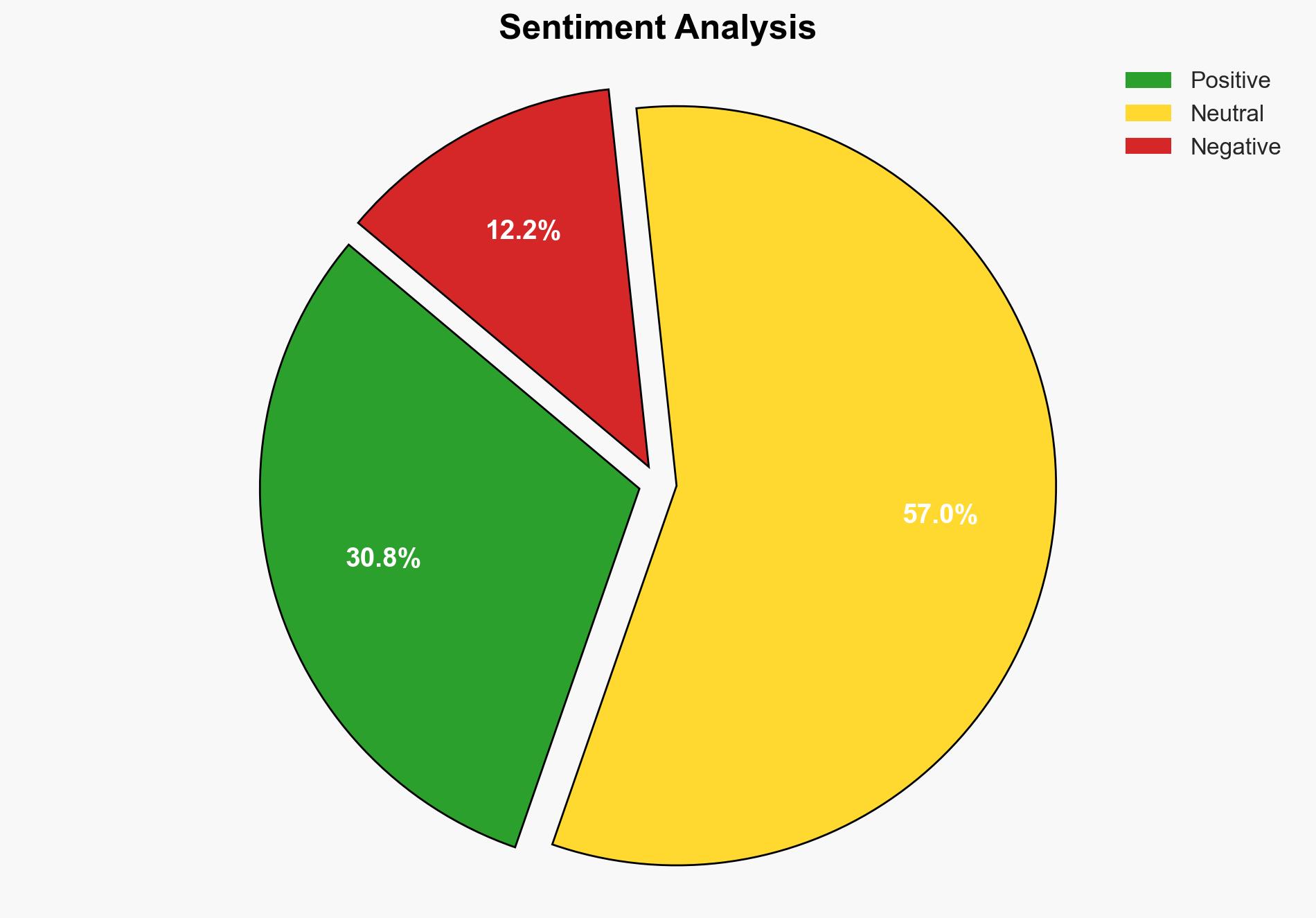Security Council Debate Sparks Praise for European Union’s UN Commitment Criticism for Alleged Russophobia – Globalsecurity.org
Published on: 2025-03-12
Intelligence Report: Security Council Debate Sparks Praise for European Union’s UN Commitment Criticism for Alleged Russophobia – Globalsecurity.org
1. BLUF (Bottom Line Up Front)
The recent Security Council debate highlighted the European Union’s steadfast commitment to the United Nations, emphasizing its role as a reliable partner in peacebuilding and international cooperation. However, the EU faced criticism for alleged Russophobia, particularly in its support for Ukraine against Russian aggression. The debate underscored the EU’s strategic partnerships and financial contributions to global peace efforts, while also revealing geopolitical tensions and the need for multilateral solutions.
2. Detailed Analysis
The following structured analytic techniques have been applied for this analysis:
General Analysis
The European Union’s involvement in the United Nations is characterized by significant financial contributions and strategic partnerships aimed at enhancing global peace and security. The EU’s support for Ukraine, in line with the UN Charter, reflects its commitment to uphold international law and resist aggression. The debate also highlighted the EU’s role in addressing global crises, such as those in Sudan and Afghanistan, and its efforts to promote multilateralism through partnerships with entities like the African Union and ASEAN.
3. Implications and Strategic Risks
The EU’s stance on Ukraine and its criticism of Russia may exacerbate geopolitical tensions, potentially impacting regional stability and economic interests. The ongoing conflict in Ukraine poses risks to global food security, as disruptions in grain availability could affect international markets. Additionally, the EU’s focus on multilateral solutions may face challenges if geopolitical divisions deepen, hindering collaborative efforts in crisis management and peacebuilding.
4. Recommendations and Outlook
Recommendations:
- Enhance diplomatic efforts to mediate tensions between the EU and Russia, focusing on dialogue and conflict resolution.
- Strengthen multilateral frameworks to ensure effective crisis management and peacebuilding initiatives.
- Encourage EU member states to maintain timely financial contributions to the UN to support global stability.
Outlook:
In the best-case scenario, increased diplomatic engagement could lead to a de-escalation of tensions and a more collaborative international environment. In the worst-case scenario, continued geopolitical friction may result in prolonged conflicts and economic disruptions. The most likely outcome involves a sustained commitment to multilateralism, with the EU playing a pivotal role in global peace efforts despite ongoing challenges.
5. Key Individuals and Entities
The report mentions significant individuals and organizations, including Kaja Kallas, the European Union, the United Nations, and the Russian Federation. These entities are central to the discussions and developments outlined in the analysis.





